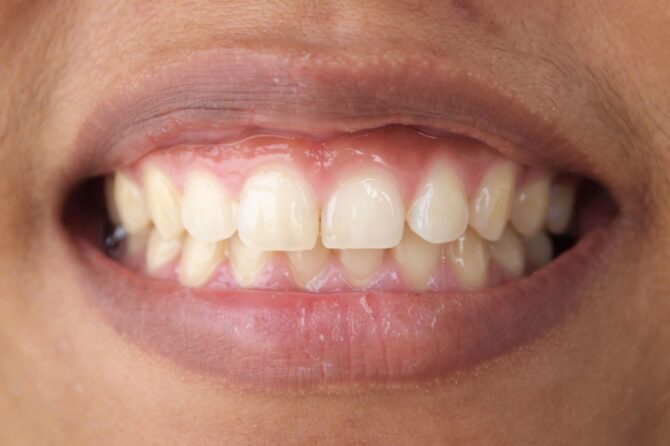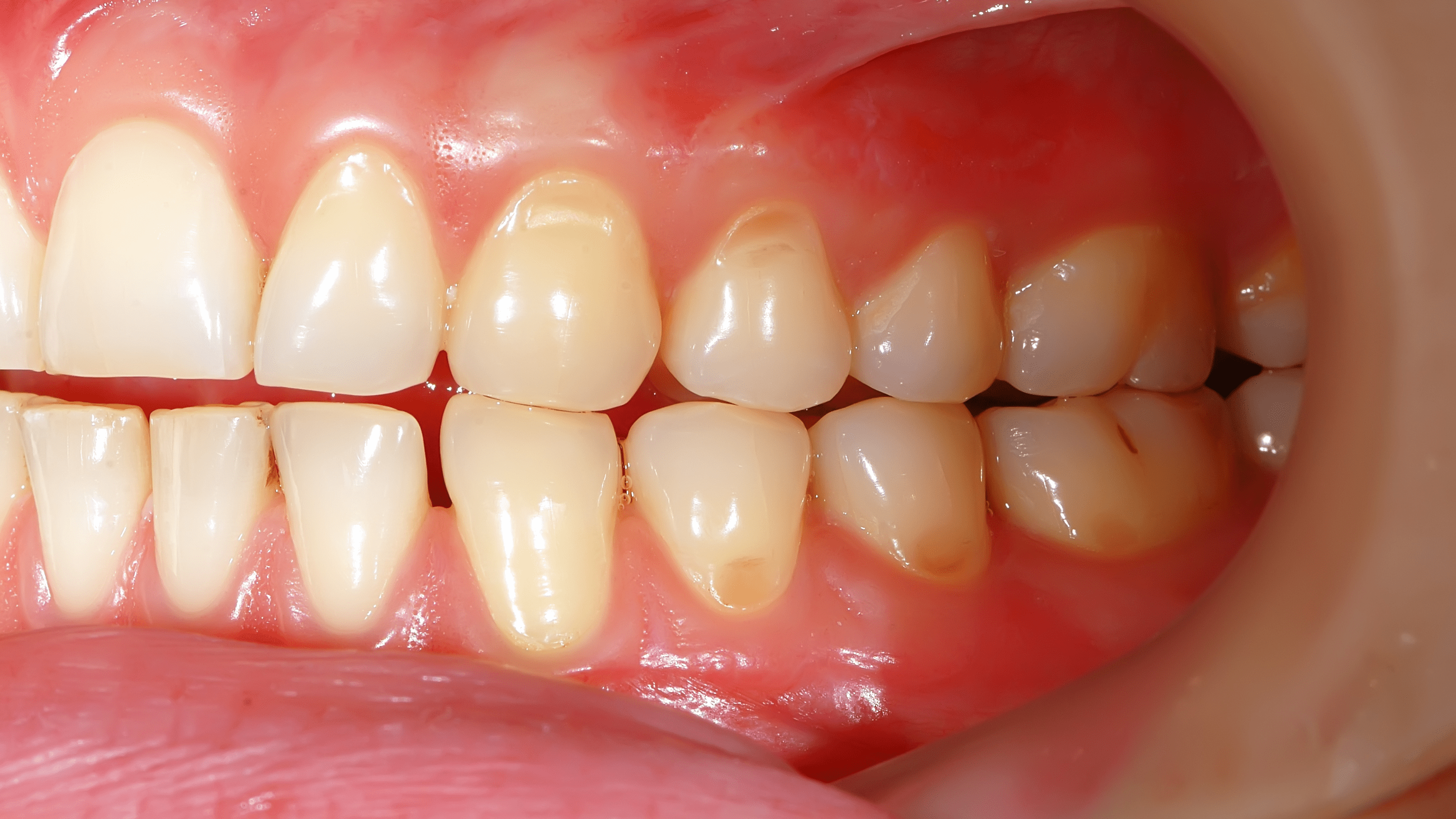
Repair Receding Gums At Home-Healing And Repairing Receding Gums
If you’ve been experiencing the symptoms of receding gums, you may want to try “repair receding gums at home.” Numerous options are available, and most have little or no side effects. For example, you can try drinking green tea, taking vitamin C, or oil pulling, a practice in which you swirl the oil in your mouth for ten to twenty minutes each day. While some of these remedies may be effective, they have their disadvantages. These natural remedies are not a replacement for brushing and flossing, which are the best preventative measures for this disease.
Symptoms
Receding gums can be a painful and uncomfortable condition. This condition happens when your gums pull away from your teeth, exposing the root surfaces. If left untreated, it can eventually lead to tooth loss. You may also experience bleeding gums, bad breath, and sensitive teeth. In severe cases, you may need gum surgery to restore your gums.
If you’re concerned about the health of your gums, see your dentist as soon as possible. A dentist can diagnose you with receding gums by checking your gums and mouth for other dental issues. If you notice a change, they can make treatment recommendations. Your dentist can refer you to a Periodontist, who will assess your gums and check for other problems.
Regular dental checkups and good oral hygiene are the best ways to avoid this problem. Brush your teeth twice daily, and clean them between the teeth and around the gum line. Also, rinse with an antibacterial mouthwash after brushing. Avoid smoking, and eat a balanced diet. A poor diet and poor oral hygiene can lead to receding gums.
Gum recession is a common problem in adults, and it’s caused by gum inflammation and bacteria buildup. It affects approximately 30% of the world’s population. Smoking and nicotine can contribute to receding gums, as they can cause dry mouth and weakened gums. In addition, genetics can play a role. Researchers believe that almost a third of the population has a genetic predisposition for gum disease.
Fortunately, doctors can diagnose periodontal disease during a routine dental exam. If your gums are receding, your dentist can measure the depth of the pockets. Based on the depth of the pockets, your dentist may diagnose you with periodontal disease and refer you to a periodontist for further treatment.
If your gums are receding, your dentist can perform several procedures to restore them to a normal level. If the recession is mild, you may be able to avoid surgery altogether. Your dentist may recommend a course of oral medications, a fluoride mouthwash, or even a bone graft to help restore the gums.
Causes
Several different factors can cause recessive gums. The most common of these causes is a bad bite, but other factors can also lead to gum recession. The best way to prevent this is to practice good oral hygiene. Brushing and flossing your teeth at least twice a day can help protect your teeth from plaque and bacteria. You can also use fluoride treatments and mouthwash to help shield your teeth. Smoking can also cause receding gums. But if you avoid these bad habits, you can prevent this problem.
Other reasons for receding gums are tobacco use and tooth grinding. These can cause pockets in your gums and damage to your bone. Eventually, this can lead to tooth loss. To avoid these problems, schedule regular dental visits with a qualified dentist. A visit to the dentist will also help determine the best treatment for your situation.

Recession can occur gradually or rapidly. The gums will be pink and scalloped around the teeth in the initial stages. As the days go by, they will begin to bleed and soften. This will cause the gums to pull away from the teeth, exposing their roots. The space between the teeth and gums will become bigger and looser, and pus will collect. Eventually, you will be left with a gap between your teeth and gums, which will result in bleeding that is quite severe.
The most common cause of receding gums is periodontal disease. Most adults over 30 have some periodontal disease, and the incidence increases as people age. This condition results from a buildup of plaque, which inflames the fibers that hold the gums in place. Eventually, pockets will form between the teeth, where the bacteria can grow and cause decay.
The best way to prevent gum recession is to practice good oral hygiene. Brushing and flossing daily with a soft toothbrush and flossing will help keep your gums healthy and protect your teeth. You should also visit your dentist for regular cleanings and checkups. Remember, the gum tissue is not regenerative, so if you’re suffering from periodontal disease, you should consider having your gums checked by a dentist as soon as possible.
Treatments
There are many different types of treatments available for receding gums. These can range from home remedies to surgical procedures. In more severe cases, you may need surgery to remove bacteria deep in the gums or replace missing gum tissue. Surgical procedures include flap surgery and gum grafts. These procedures remove the damaged gum tissue and promote gum tissue regeneration. Aside from cosmetic benefits, they can even prevent bone loss.
At-home treatments can also help you prevent or reverse the effects of the recession, which can wreak havoc on oral health. They can also provide relief from painful gums and sensitivity. You can also try oil pulling, an age-old oral hygiene practice that uses natural oils to remove plaque. This practice has proven highly effective in treating receding gums and gingivitis.
Another effective home remedy is the use of aloe vera. This herb has antibacterial, anti-inflammatory, and anti-viral properties. It helps repair the gum tissue and prevent infections. Aloe gel can be applied directly to the gums or as a mouthwash. This treatment should last for about five minutes.
Bee propolis has antibacterial and antifungal properties. It stimulates the gum tissue and also helps fight bad breath. However, it should be used cautiously as it can dissolve the enamel on your teeth. The propolis mouth rinse can be purchased from local stores. Before taking propolis supplements, you should consult your doctor.
Receding gums are very uncomfortable and can lead to infections and tooth loss. Fortunately, many home remedies for receding gums can be applied to treat the problem. Taking the time to diagnose and treat the issue properly will help to minimize the risk of serious complications.
There are also some natural home treatments that you can use to stop the recession process. Oil pulling can help reduce plaque buildup by removing bacteria. It is important to rinse your mouth after oil pulling and then brush your teeth. Some other effective home remedies for receding gums include using Aloe Vera gel on inflamed gums. Another effective remedy for gum recession is green tea, which contains antioxidants that help promote healthy gum tissue.
Home remedies
If you are suffering from receding gums, you must see a dentist as soon as possible. While regular dental work is the best option for treating receding gums, home remedies for receding gums may help you manage the pain caused by your condition. In addition, you should keep your mouth clean at all times.
Regular brushing and flossing can help prevent gum disease. Using toothpaste formulated for sensitive teeth and gums will also help fight bacteria. You can also use an oil rinse that contains eucalyptus, which has antibacterial properties. The oil also has a positive effect on the gums. Drinking green tea regularly has also been shown to reduce inflammation, which is a precursor to gum issues.
Sesame oil is another natural home remedy for receding gums. This oil is effective in cleaning plaque buildup and toxins from the gums. It is also good for the overall health of the gums and can be used as a mouthwash. Lemon oil has antiseptic properties and can also help with receding gums.

Another natural remedy for receding gums is oil pulling. It can reduce inflammation and reduce pain in the gums. Applying coconut oil to the gums can help as well. Tea tree oil can also be used to help with inflammation. It contains antioxidants that are effective for gum health.
Besides eating more fruits and vegetables rich in vitamin C, you can also use rose vinegar as a natural home remedy for receding gums. Rose vinegar is an excellent home remedy for receding gums because it strengthens gum tissue. However, you should avoid sugary beverages for at least an hour after eating or drinking, as they can feed the bacteria that cause gum disease.
If you are suffering from receding gums, the first step is to determine the root cause. Several different factors, including genetics, may cause the condition. A primary cause of gum recession is gum disease. As the infection progresses, the gum tissue pulls away from the teeth, damaging soft tissues. Other potential causes include misaligned teeth or grinding teeth. Hormonal changes can also cause receding gums.
What are some home remedies for receding gums?
You can do a few things at home to help treat and prevent receding gums. First, brush and floss regularly to keep your teeth and gums clean and healthy. You can also try using an oral irrigator to help remove plaque and bacteria from your teeth and gums. Finally, try using a natural mouthwash made with ingredients like tea tree oil or baking soda to help keep your mouth clean and healthy.
How can I prevent my gums from receding?
In addition to brushing and flossing regularly, you can do a few other things to help prevent your gums from receding. First, be sure to visit your dentist regularly for cleanings and checkups. As mentioned above, you can also try using an oral irrigator or natural mouthwash. Finally, avoid things that can irritate your gums, such as smoking or chewing tobacco.
What are the signs of receding gums?
There are a few different signs that you might notice if you have receding gums. First, you may notice that your gums appear to be pulling away from your teeth. Additionally, your teeth may look longer than usual, and you may have gaps between your teeth where the gum tissue used to be. See your dentist as soon as possible if you notice any of these signs.
It’s important to have realistic expectations when repairing your gums at home. While there are several things you can do to improve the health and appearance of your gums, complete gum regeneration is not possible. That said, by following a good oral hygiene routine and using the right products, you can make a significant difference in the health of your gums. If you’re concerned about your gum health, visit your dentist for a professional cleaning and evaluation. In some cases, more aggressive treatment may be necessary to restore your gum tissue to its former glory. But with proper care, it is possible to keep your gums healthy and free from disease.
If you’re looking for a natural and effective way to treat your receding gums, then you’ll want to try Dental Pro 7. Our unique formula contains a blend of herbal extracts proven to help improve gum health.
Here’s how our product works
The first step is to apply Dental Pro 7 directly to the affected areas of your gums. The next step is to massage the gel into your gums for two minutes. This will help stimulate blood flow and promote healing. Finally, rinse your mouth with warm water and brush your teeth as usual.
Leave a reply